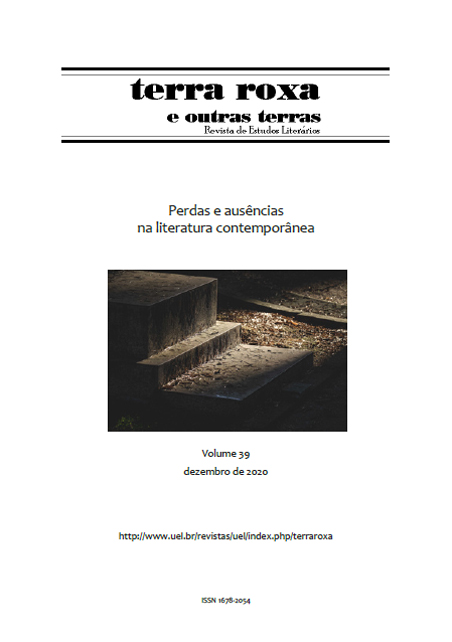Rwanda, country of tears: reflections on loss, memory and narrative in Cockroaches, by Scholastique Mukasonga
DOI:
https://doi.org/10.5433/1678-2054.2020v39p93Keywords:
Scholastique Mukasonga, Loss, Memory, Autobiographical narrativeAbstract
The article intends to think of loss as a central component in the autobiography Cockroaches, by Scholastique Mukasonga, considering the history of Rwanda, marked by colonization, and the search for a Rwandan memory. According to Richard Oko Ajah (2015), the writer's works that address ethnic conflict in Rwanda are narratives of memory and trauma, which denounce the conditions culminating in a structural trauma suffered by Tutsis over decades of violence and segregation until the 1994 genocide. The loss and absence of her own, haunting the author, narrator and surviving character of the massacre, made her take the position of guardian of her people's memory. It is thought that the traumatic experience, characterizing the testimonial content of Cockroaches, leads the writer to seek, through remembrance (Gagnebin 2006), a way of acting in the present to fight the forgetfulness and the repetition of the horrors of the past, humanizing herself through art.Downloads
References
FREUD, Sigmund. Luto e melancolia. Introdução ao narcisismo, ensaios de metapsicologia e outros textos (1914-1916). Trad. Paulo César de Souza. São Paulo: Companhia das Letras, 2010. 170-194.
GAGNEBIN, Jeanne Marie. Memória, história, testemunho. Lembrar, escrever, esquecer. São Paulo: Editora 34, 2006. 49-57.
MAMDANI, Mahmood. When Victims Become Killers: colonialism, nativism, and the genocide in Rwanda. Princeton: Princeton UP, 2001.
MBEMBE, Achille. Necropolítica. Arte & Ensaios, Rio de Janeiro, v. 2, n. 32, p. 122-151, 2016. https://revistas.ufrj.br/index.php/ae/article/view/8993.
MUKASONGA, Scholastique. Baratas. Trad. Elisa Nazarian. São Paulo: Nós, 2018.
RODRIGUES, Adriana Cristina Aguiar. Prelúdio a um genocídio: memória, rumor e teor testemunhal na narrativa de Scholastique Mukasonga. Caligrama: Revista de Estudos Românicos, Belo Horizonte, v. 23, n. 3, p. 63-82, 2018. http://www.periodicos.letras.ufmg.br/index.php/caligrama/article/view/13986.
SELIGMANN-SILVA, Márcio. Narrar o trauma: a questão dos testemunhos de catástrofes históricas. Psicologia Clínica, Rio de Janeiro, v. 20, n. 1, p. 65-82, 2008. https://doi.org/10.1590/S0103-56652008000100005.
Downloads
Published
How to Cite
Issue
Section
License
Copyright (c) 2020 Terra Roxa e Outras Terras: Revista de Estudos Literários

This work is licensed under a Creative Commons Attribution 4.0 International License.
Authors who publish in this journal agree to the following terms:
a) The authors retain the copyright and grant the journal the right of first publication, the work being simultaneously licensed under the Creative Commons Attribution-NonCommercial 4.0 International License, allowing the sharing of the work with acknowledgment of the authorship of the work and initial publication in this journal.
b) Authors are authorized to assume additional contracts separately, for non-exclusive distribution of the version of the work published in this journal (eg, publish in an institutional repository or as a book chapter), with acknowledgment of authorship and initial publication in this journal.
c) Authors are allowed and encouraged to publish and distribute their work online (e.g. in institutional repositories or on their personal page) after the editorial process, as this can generate productive changes as well as increase impact and citation of the published work (See The Effect of Open Access).
d) The authors of the approved works authorize the journal to, after publication, transfer their content for reproduction in content indexers, virtual libraries and the like.
e) The authors assume that the texts submitted for publication are of their original creation, taking full responsibility for their content in case of any objection by third parties.



















